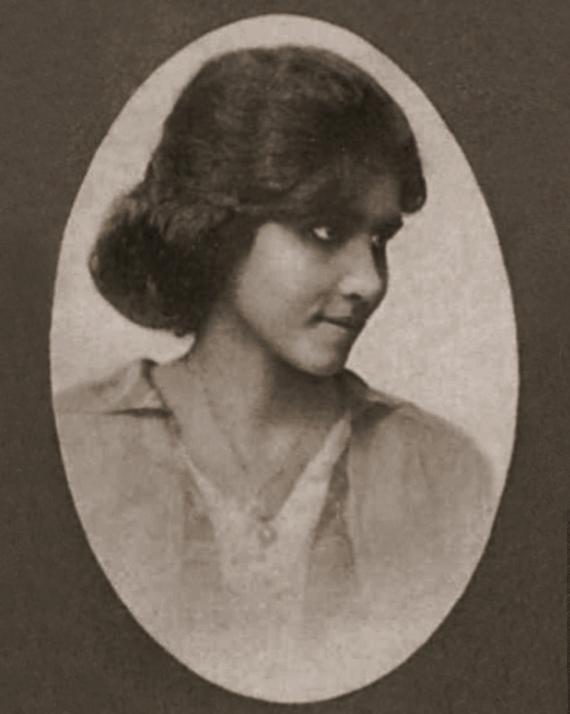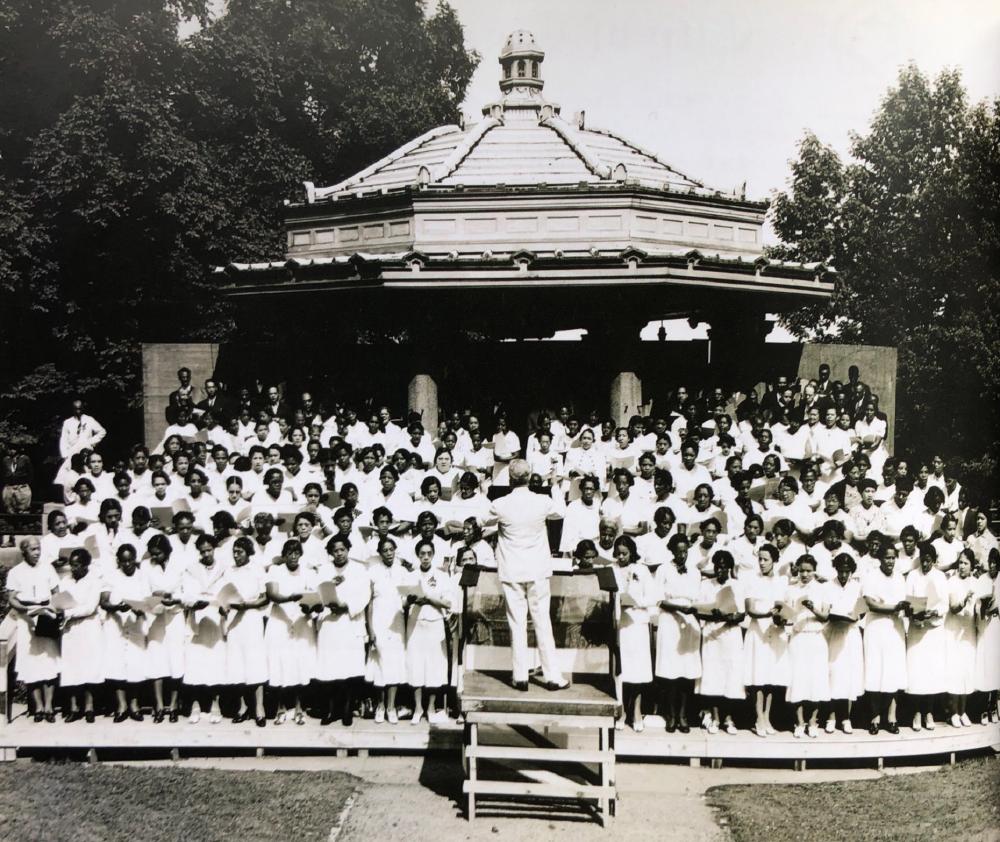
The Annual, 1917, p. 67.
An important Black voice in Cincinnati during the first half of the 20th century, Helen Walker King (1898-1957) was a soprano soloist, public school teacher, and advocate of choral concerts to celebrate African American music making. Highly regarded as “Cincinnati’s Soloist,” she performed frequently throughout the city. During a time of segregation, she created singing opportunities for Black vocalists by helping found the “Negro Folk Festival.” This festival was the progenitor of the annual June Festival (1938-1952), that brought together classically trained Black choruses and soloists who were unwelcome until 1956 to join the May Festival choral concerts held annually in Cincinnati Music Hall.
Helen Cooper Walker grew up in Cincinnati’s West End, singing in her father, Rev. Junius Franklin Walker’s Metropolitan Baptist Church choir. Where her mother, Hattie Brown Walker, a public school teacher and Cincinnati’s first Black public librarian, played piano. Helen graduated from Woodward High School (1917), received a B.A. in education from the University of Cincinnati (1921), and studied at the New England Conservatory of Music in Boston (1924). Her dedication as public school teacher for over 25 years at Frederick Douglass Elementary led to her appointment as the first female and youngest trustee of Wilberforce University. Her sister, Breta, also graduated from Woodward H.S., received two degrees from U.C., and taught public school. Both sisters were founders of the Sigma Omega Chapter of the Alpha Kappa Alpha Sorority (1924). In 1927, Helen married Col. and Rev. Charles N. King.
As a vocal soloist Helen’s repertoire included classical and spiritual works and performed in numerous Black churches and venues across Cincinnati. Her career highlights included programs in the Emery Auditorium (1923 and 1938); WLW radio broadcasts (1928); the Y.W.C.A. at Ninth and Walnut streets (1929); Cincinnati Music Hall (1929); The Isaac M. Wise Center (1932); Cincinnati Civic Opera Company at Wilson Memorial Auditorium, U.C. (1932); choral concerts in Hughes High School (1934 and 1935), and at the Ninth Street Y.M.C.A. (1936).
Active in music throughout Cincinnati’s Black community, Helen advised the Public Recreation Commission (PRC) in the creation of the first annual “Festival of Negro Music,” organizing a 250-member chorus for a performance at the Eden Park Bandstand (where the Seasongood Pavilion is today) on August 27, 1932. The following year, she served as chair of the music committee for the festival on June 24, which boasted a chorus of 500, a children’s chorus, and professional soloists performing in Eden Park again. On June 11, 1934, the concert featuring a PCR sponsored “Community Artists Chorus” was at the Cincinnati Zoo auditorium. On June 28, 1935, the festival moved back to Eden Park with a chorus of over 200 singers in a program titled “The Evolution of Negro Music,” including a chorus of 200 men, women, and children. On June 13, 1936 the final PRC festival was in Eden Park.
In 1938, the “June Festival” was born, built upon the success of the previous “Negro Folk Song Festivals.” Again, presented at the Eden Park Bandstand, the first June Festival had a chorus of 300 and an audience of over 4,000, growing annually for the next 14 years. June Festivals celebrated Black music making of the highest order, with renowned local and internationally recognized soloists into the 1950s.
The foresight and musical passion of Helen Walker King helped build performance opportunities for Black choruses and soloists, opening the door for thousands of African Americans to share in exalted music making that helped propel Cincinnati’s urban renaissance. Helen died one year after Cincinnati’s May Festival chorus allowed everyone to join, regardless of race. The Walker family graves are in Spring Grove Cemetery.
Read more at
Images

The Annual, 1917, p. 67.
